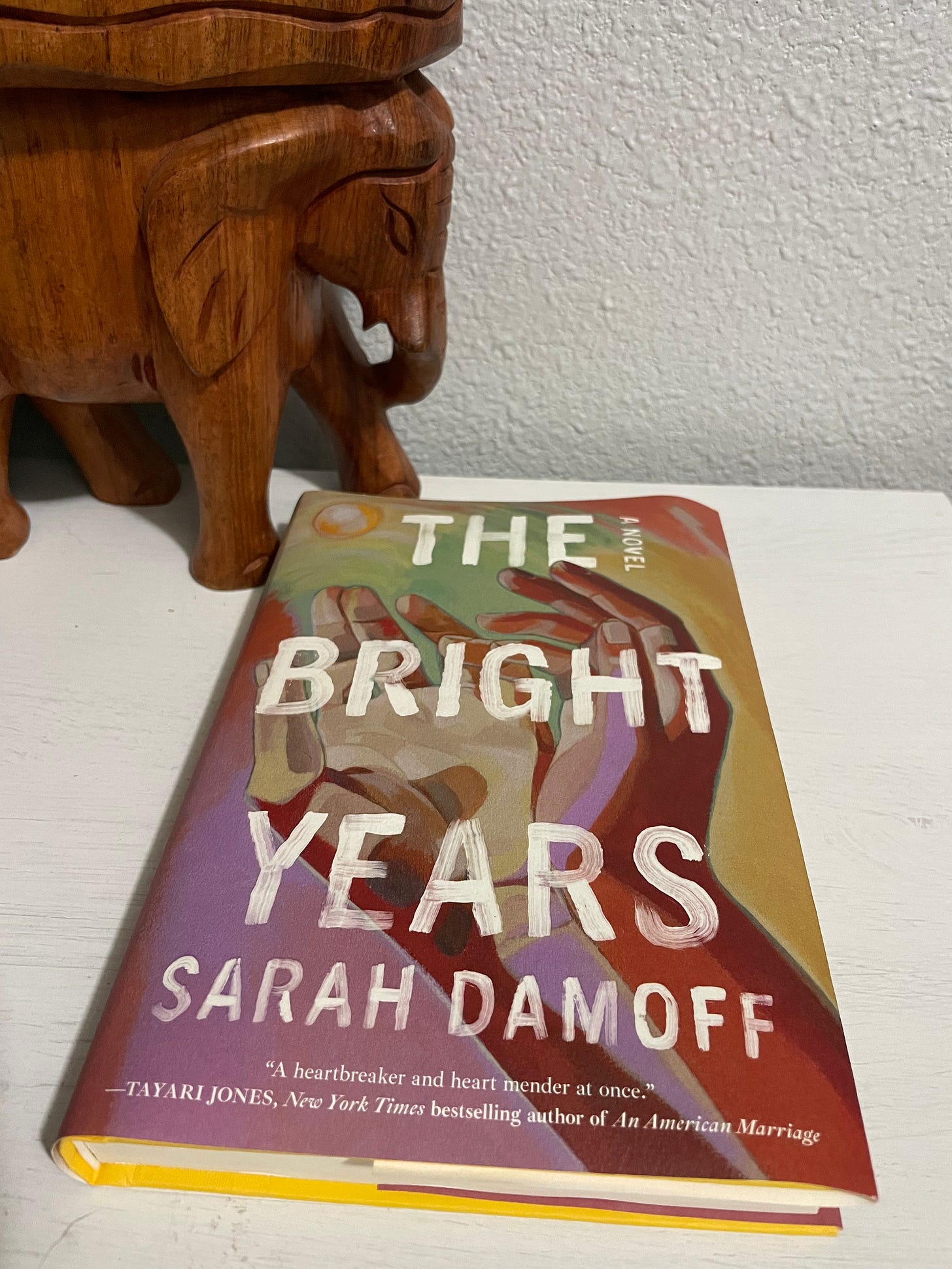TL;DR
You don’t get a shortcut today. Sarah deserves your full attention.
My friend Sarah Damoff’s book The Bright Years (Simon & Schuster) released on Tuesday, and I couldn’t be more excited for her. Sarah and I met nearly twenty years ago, serving in children’s ministry together and living around the corner in the quirky college town of Denton, TX.
I got my first job in social work in part thanks to her, and a couple years ago, she let me read an early draft of one of her manuscripots, which I really hope she’ll be working on soon.
Best of all, she deserves this. She’s one of the most gifted writers I’ve ever known.
Three years ago, she asked to meet with me about some publishing questions she had. I won’t pretend I gave her the best advice in the world as I was still learning so much myself. However, I did give her one piece of good advice when she asked if she should just self-publish:
“Maybe some stuff, just so you can start being read by people,” I said. “But if you’ve got a favorite, and you’re okay with the possibility it never gets read, then you should save it for trying to go traditional.”
Well, that’s what she did.
And even though Sarah currently has less than 1,000 followers on Instagram, she’s taken a brilliant approach to land a traditional deal on her debut novel with one of the Big 5 in publishing.
So . . . how did she do it?
Get Your Work Out There
The first smart move Sarah made was taking the effort to get her work out into the world. She was a coauthor on an advent guide and a contributor to a nonfiction book. But she also started entering flash fiction competitions—and won a couple of them. This gave her some proof that her talent was real.
Be a Great Literary Citizen
The next smart move she made was becoming a great literary citizen. She posted online about the books she was reading and why she loved them. She tagged authors she admired, commented on their posts, and formed genuine connections with Bookstagrammers.
The problem many aspiring authors face when it comes time to market their book is spamming the influencers, “Read my book! Review my book!” But they haven’t put in the work ahead of time to develop real connections. (Note to self: Be a better literary citizen.)
Find Alpha Readers
Many of you have heard of beta readers. Heck, I used beta readers on my own book Start With Story last year. But Sarah was smarter by using alpha readers during early drafts—in fact, my wife was one of her alpha readers for The Bright Years!
Many writers wait too long for feedback. By being open to feedback early on—before the manuscript was quote-unquote “ready to be read”—she was able to home in on what worked and what didn’t much earlier.
Reverse Engineer the Query
Something I’ll be stealing from Sarah in my next round of fiction querying is reverse engineering the process. Most authors’ querying strategy is little better than throwing spaghetti-O’s against the proverbial wall of agents.
Sarah started by identifying the acquisitions editors who had worked on some of her favorite books and comp titles. Then she looked at which agents worked with those editors the most. This gave her a hyper-focused list where she could lead off her queries with specific statements like, “I loved your work on [Book Title].”
Even with this approach, she still faced silence and rejection, as all fiction authors must in this process. But eventually, she had some full requests and offers—and landed her agent who represents one of the biggest names in fiction of the past ten years.
Don’t be a One-Trick Pony
Finally, even when you’re querying your latest manuscript, you need to be working on the next one—which is exactly what Sarah did. She knew that whenever an agent showed interest, she needed to be able to show she had more than one book in her. Agents are looking to build relationships—and careers—with the authors they represent.
Now Go Get Your Copy
It feels nice for once to get to promote someone else’s work. But seriously, if you’re looking for a great “book club” lit fic, then you’re going to want to check out The Bright Years. I have a feeling the future is bright for the book and for Sarah—and I’m not just saying that out of bias.
P.S. Sarah is going to be on my favorite fiction podcast The Shit No One Tells You About Writing, which also has a fantastic Substack (linked).
Alright, and now for your regularly scheduled content ideas:
How has fiction helped you understand a new point of view?
What was something you learned from the last book you read?
Who is an author you would want to meet in real life and why?
If you could enter the world of any book, which one would you choose?
Where is your favorite spot to read a book?
And if you’re a paid subscriber, check out your bonus content ideas below. Until next time, keep changing the world—one story at a time.
Did this help you? If so, share this with someone you know via the handy little button below.
Automate your savings (and help support this newsletter) by signing up for the Acorns app. Oh yeah, and get a $5 thank you gift from them when you do.





